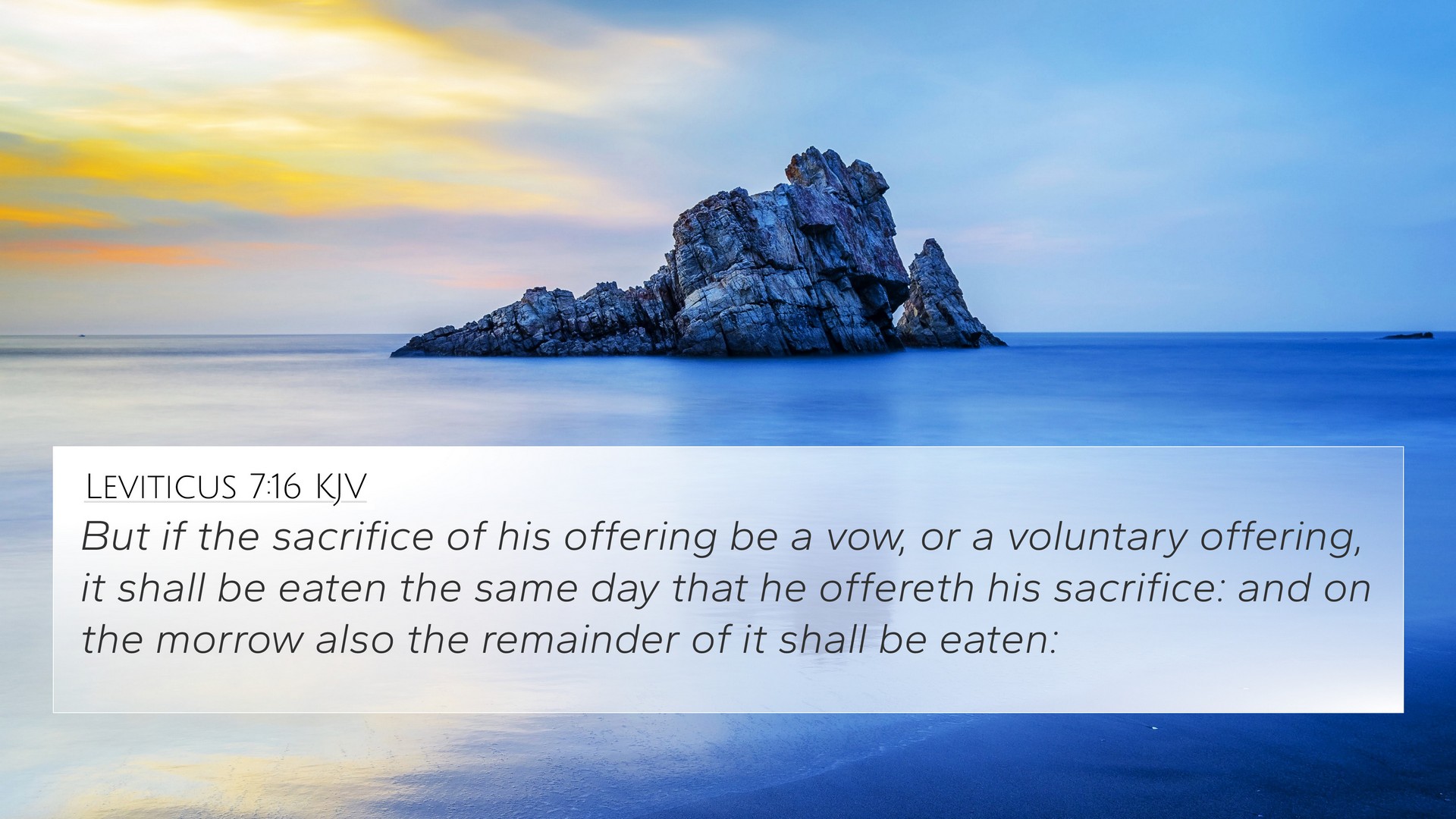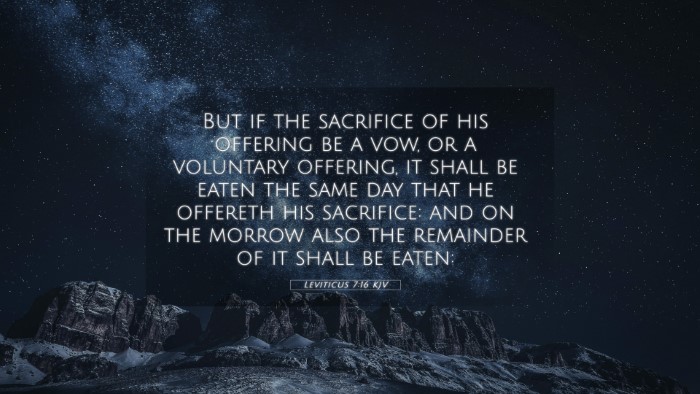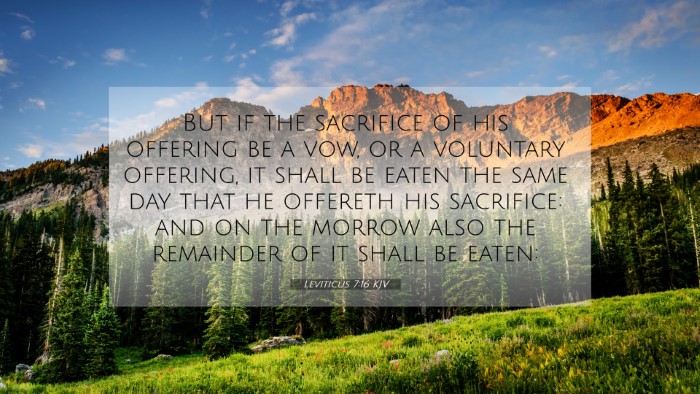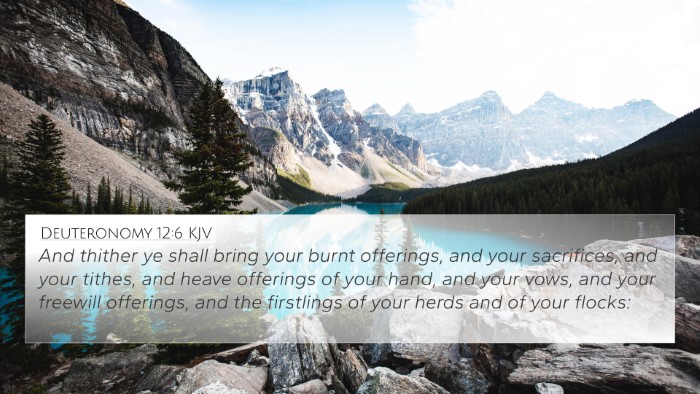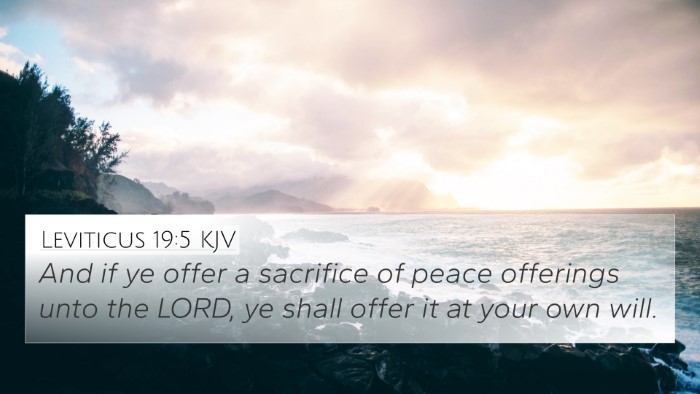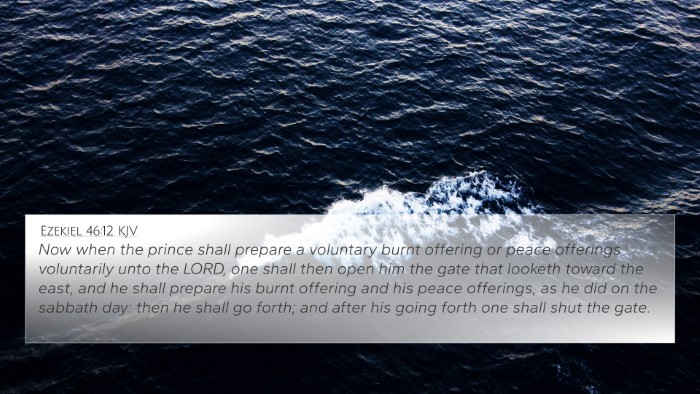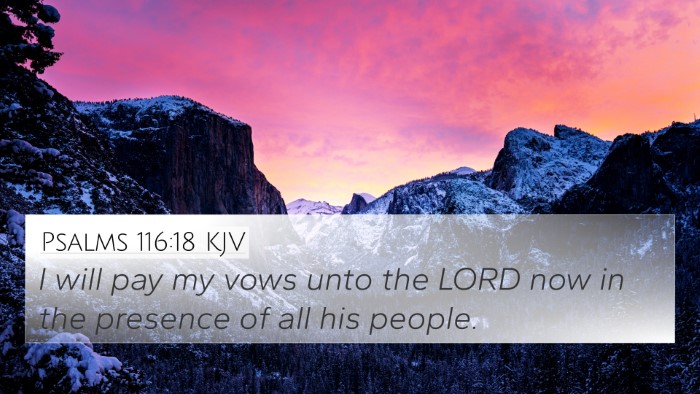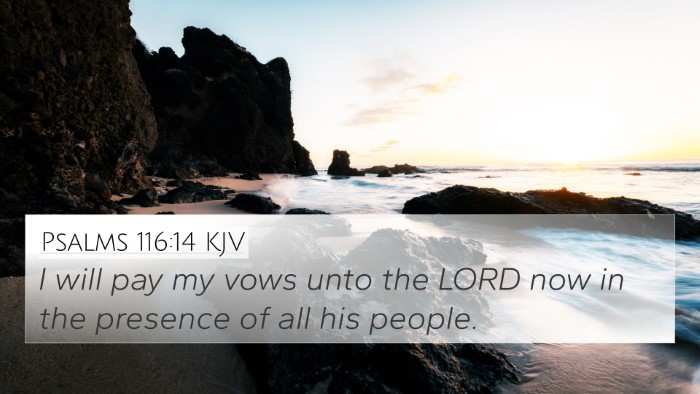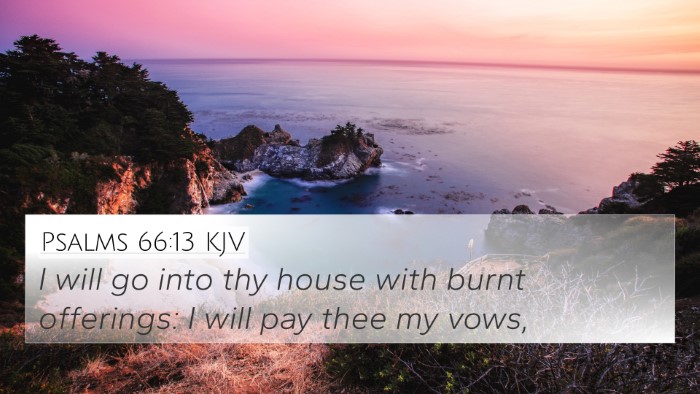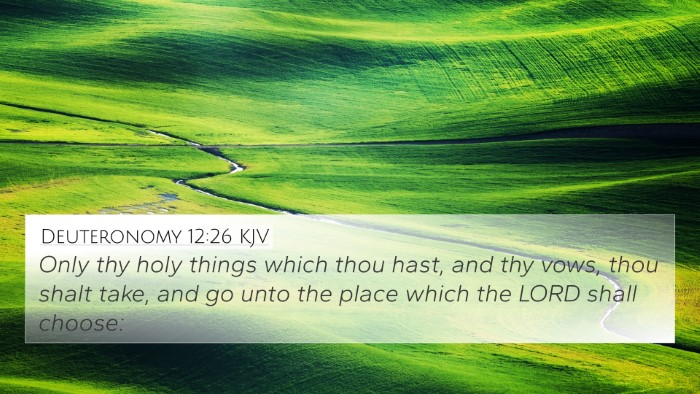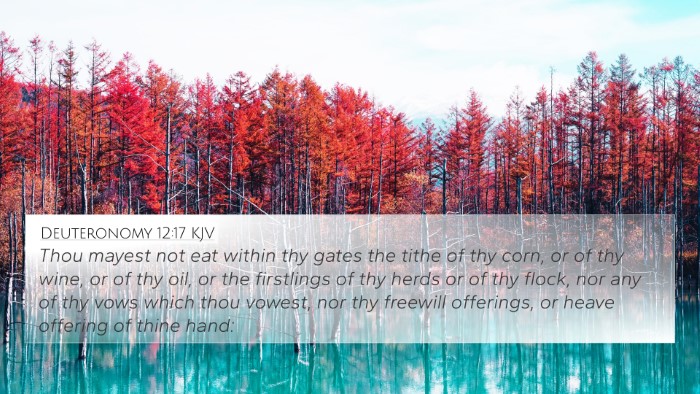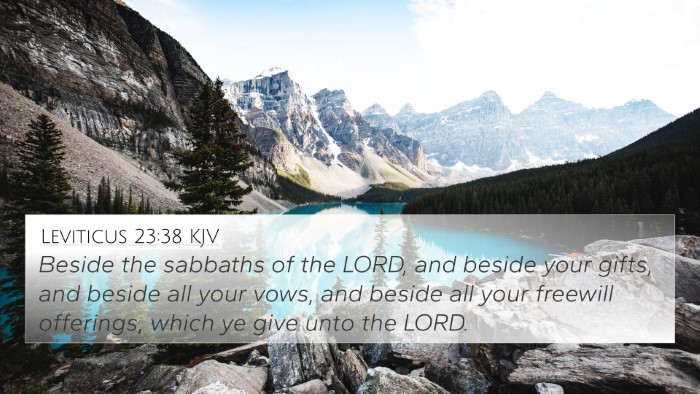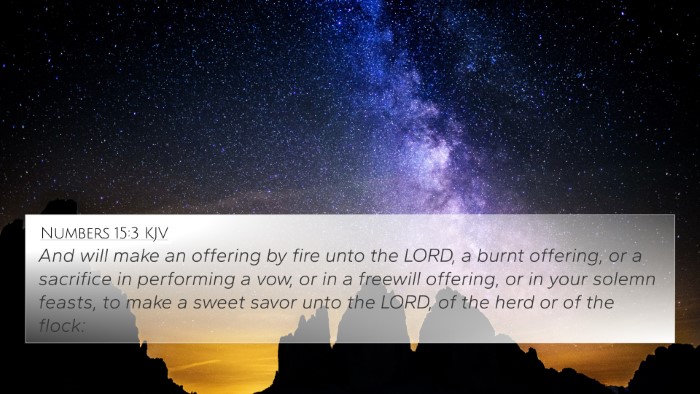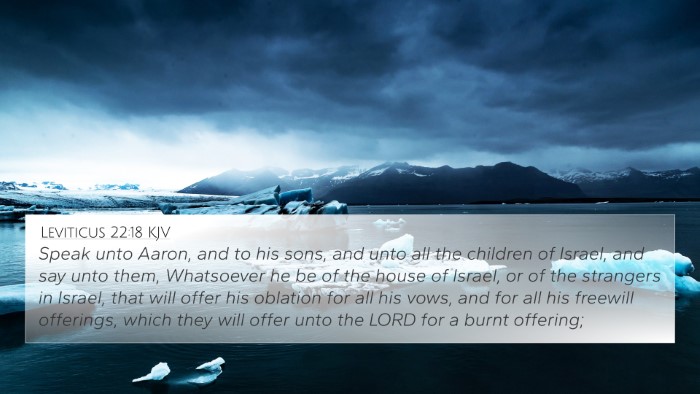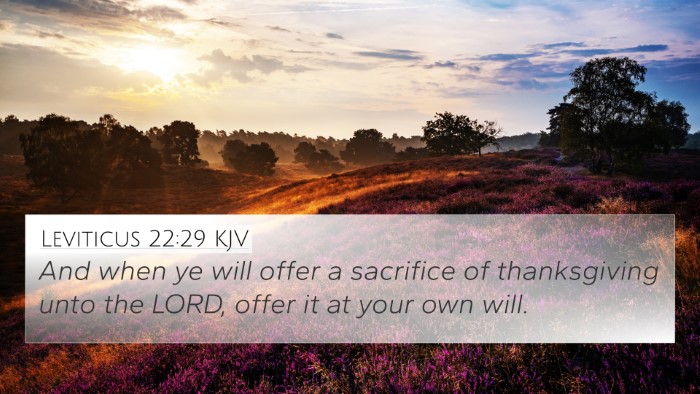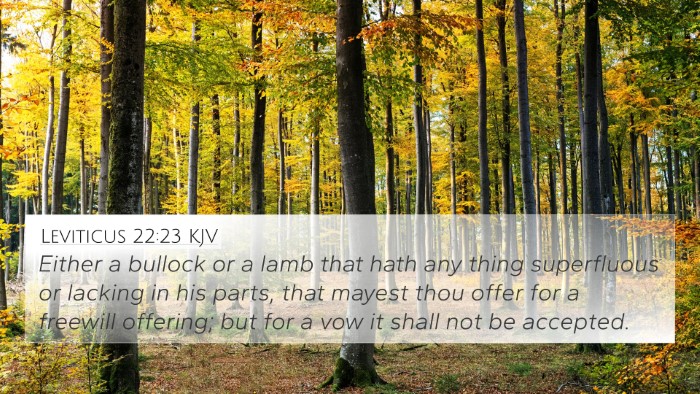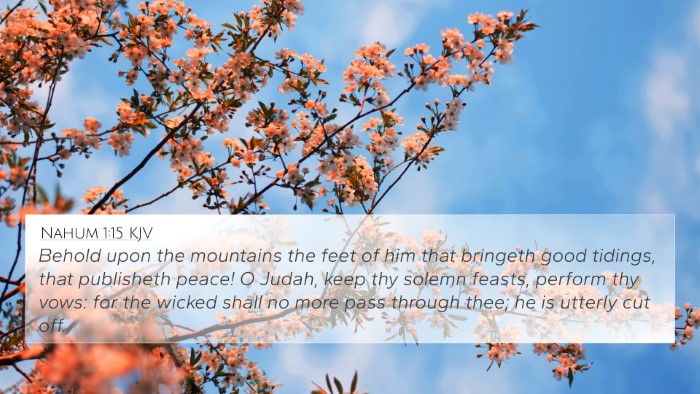Understanding Leviticus 7:16
Leviticus 7:16 states: “But if the sacrifice of his offering be a vow, or a voluntary offering, it shall be eaten the same day that he offers his sacrifice: and on the morrow also the remainder of it shall be eaten.” This verse highlights the regulations surrounding the consumption of offerings made in a vow or as a voluntary act of worship.
Meaning and Interpretation
This scripture emphasizes the importance of intention behind offerings and the necessity of their timely consumption. The insights of various public domain commentaries reveal the significance of this practice among the Israelites.
- Matthew Henry's Commentary: Henry suggests that the timing of consuming the offerings illustrates a sense of obedience and reverence to God. The need to eat the offerings within a prescribed time frame also signifies the sacredness of the vows made. An offering made as a vow typically reflects a deeper commitment and connection to God.
- Albert Barnes' Notes: Barnes emphasizes that offerings stemming from vows are distinct in their requirement to be eaten promptly. He argues that this aids in maintaining the devotion associated with the sacrifice, thereby preventing casualness or negligence. Barnes also points out the significance of voluntary offerings as an expression of sincere gratitude towards God.
- Adam Clarke's Commentary: Clarke elaborates on how this verse serves to enhance communal worship. He indicates that the sharing of such offerings fosters a collective connection to God and deepens the faith community. In addition, Clarke comments on the necessity of maintaining the purity of these sacrificial offerings, promoting a culture of respect for God's commandments.
Cross-References and Thematic Connections
Leviticus 7:16 has multiple Bible verse cross-references that enrich its understanding and illustrate longstanding themes of sacrifice, community, and respect for God’s commands. Below are notable references:
- Leviticus 22:29: This verse discusses the requirement to offer voluntarily and with joyfulness, enhancing the thematic connections between sacrificial offerings and personal commitment to God.
- Deuteronomy 12:6: It reflects on bringing offerings to designated places and understanding that sacrifices offered in reverence hold communal significance.
- Psalms 50:14: This aligns with the notion of fulfilling vows to God as a form of gratitude.
- Matthew 5:23-24: Jesus reiterates the importance of reconciliation prior to offering gifts at the altar, tying back to the themes of intentionality in offerings.
- Romans 12:1: The New Testament echo of sacrificial living, where believers are called to present themselves as living sacrifices to God, relates thematically to voluntary offerings in Leviticus.
- Hebrews 13:15: Here, praise is offered as a sacrifice, fortifying the idea that offerings can extend beyond physical gifts to expressions of gratitude.
- Genesis 8:20: Noachic offerings demonstrate early examples of sacrificial worship and the promise of covenant, bridging Old and New Testament practices.
- 1 Corinthians 11:26: This verse discusses the act of communion in remembrance of Christ's sacrifice, reflecting the continuation of sacrificial themes into the New Testament.
- Philippians 4:18: Paul refers to the gifts from the Philippians as a sweet-smelling sacrifice, pleasing to God, linking back to the nature of offerings in the Old Testament.
- 1 Peter 2:5: Believers are described as living stones being built into a spiritual house, reflecting the ongoing theme of participatory worship in offerings.
Thematic Insights
This verse offers insight into the nature of relationships in worship, the intention behind offerings, and collective participation in sacrificial practices. By understanding Leviticus 7:16 in the context of its cross-references, it becomes clear that these sacrificial acts serve more significant purposes than mere ritual, embedding them within the fabric of Israelite identity and communal worship.
As a result, engaging with this verse aligns both with historical practices of the Church and contemporary reflections on worship and devotion, fostering a deeper understanding of how ancient texts continue to inform spiritual life today.
Conclusion
In conclusion, Leviticus 7:16 teaches the importance of voluntary offerings and the need for intentionality in worship. Through the biblical cross-references, one can observe how these themes resonate through both the Old and New Testaments, providing a fuller understanding of the role of sacrifice in the life of believers. This interconnectedness through scriptural cross-referencing invites deeper theological reflection and personal application for individuals today.
